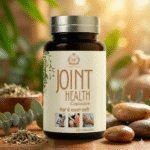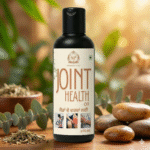5 Effective Ayurvedic Hair Care Tips for Hair Growth
If you’re striving for stronger, healthier, and longer hair, following Ayurvedic hair care practices can make a real difference. These natural routines focus on nourishing your scalp, strengthening hair roots, and promoting ayurvedic hair growth — all with ingredients and techniques rooted in tradition. Below are five effective tips you can easily incorporate into your weekly regimen. 1. Warm Hair Oil Massage to Stimulate Scalp Circulation Regular oiling is one of the best Ayurvedic practices for supporting hair growth. Massaging warm oil into your scalp increases blood circulation, helps deliver essential nutrients to hair follicles, and supports relaxation — all of which contribute to healthier hair growth over time. Try using S.P KESH KAMAAL 15 IN 1 MIRACLE OIL as a growth-promoting hair oil. This multi-ingredient herbal oil blends natural extracts and carrier oils traditionally used for hair nourishment and scalp health. How to do it: Consistent weekly oil massages enhance nourishment, strengthen roots, and lay a foundation for ayurvedic hair growth. 2. Choose Hair Oils With Deep Nourishing Ingredients Not all oils are the same — look for formulations enriched with herbs and nutrients that Ayurveda traditionally associates with healthy hair. Great options from SP Pharma include: PANZY Hair Oil – A classic herbal hair oil formulation that pairs well with Ayurvedic scalp massages. These oils not only moisturise and strengthen hair but also help combat breakage and support a healthier scalp environment — all essential for natural ayurvedic hair growth. 3. Replace Harsh Shampoos with Ayurvedic Hair Cleansers Cleansing your scalp without stripping away its natural oils promotes a balanced environment where hair can grow stronger. Instead of chemical-heavy shampoos, use herbal cleansers infused with Ayurvedic botanicals. While your SP Pharma hair care range includes shampoos like Aloe Vera Neem Fibrestrong Strengthening Shampoo and Amla Shikakai Deep Cleansing Shampoo, the focus here is on hair oiling before cleansing to lock in moisture. Tip: Oil your hair before shampooing for deeper nourishment. Leave oil on for 1–2 hours before washing. 4. Weekly Herbal Hair Masks & Treatments Ayurvedic hair masks with natural herbs such as amla and bhringraj provide targeted nourishment to both scalp and strands. These herbs are traditionally associated with hair strength and vitality. DIY mask idea: Mix amla powder with water or aloe vera to make a paste. Apply to scalp and hair, then rinse after 20–30 minutes. Pairing these masks with regular use of enriched hair oils like Sargun Hair Oil can enhance overall results and support ayurvedic hair growth. 5. Nourish From Within With Diet & Lifestyle Habits Healthy hair starts inside the body. Ayurvedic wisdom emphasises a balanced diet rich in vitamins, minerals, and hydration. Eat Nutrient-Rich Foods Manage Stress & Sleep Chronic stress can contribute to hair shedding. Practices like meditation and adequate sleep help not only your overall wellbeing but also healthy hair growth. Ayurveda sees the mind and body as connected — reducing stress enhances your body’s natural ability to support hair follicles and overall hair health. Final Thoughts Ayurvedic hair care isn’t a quick fix — it’s a thoughtful, consistent approach that brings together nourishing oils, gentle cleansers, herbal treatments, and mindful lifestyle habits. By incorporating weekly oiling, choosing the right formulations (like Sargun Hair Oil and Kesh Kamaal Oil), and supporting your body with a balanced diet and self-care, you set up the perfect environment for natural ayurvedic hair growth.



